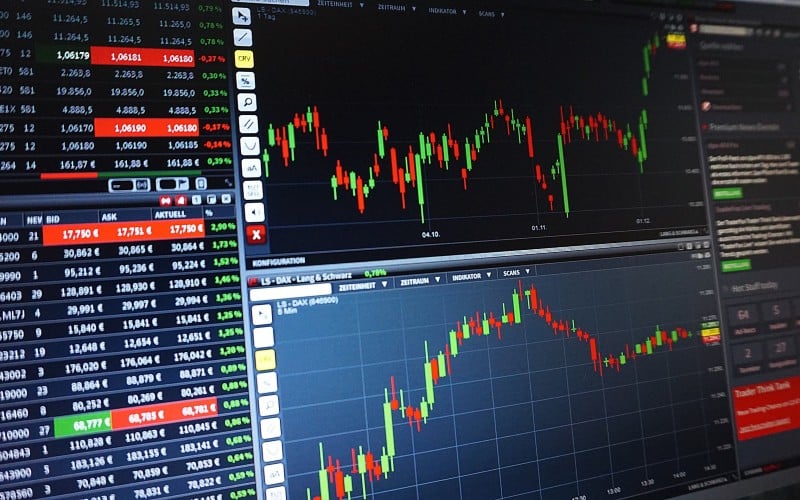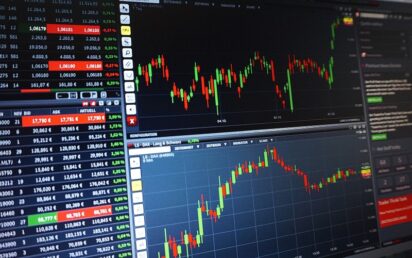Introduction
Navigating the world of Forex trading can be daunting, especially when selecting a broker. As an intermediary between you and the foreign exchange market, a Forex broker plays a vital role in your trading experience. Choosing a reliable broker ensures your funds are safe, trade execution is efficient, and you have access to the necessary resources to succeed.
Understanding Forex Brokers
What is a Forex Broker?
A Forex broker acts as a bridge between you and the currency markets, facilitating the buying and selling of currency pairs. They provide you with a trading platform, the necessary tools to analyze market trends, and execute your trades. Forex brokers earn money through spreads or fees on transactions, making them integral to your trading journey.
The Role of Forex Brokers in Trading
Forex brokers hold significant responsibilities that directly impact your trading success. They ensure market access by providing a trading platform where you can execute buy and sell orders for various currency pairs. Apart from facilitating transactions, brokers offer market analysis tools and data, enabling you to make informed trading decisions. They play a crucial role in determining transaction costs through spreads and commissions. A broker’s role extends to managing trade execution speed, liquidity access, and even offering educational resources for both novice and advanced traders.
Key Criteria for Evaluating Forex Brokers
Choosing a reliable forex broker is a crucial first step for any trader looking to succeed in the currency markets. With so many options available, it can be overwhelming to determine which broker offers the best combination of security, transparency, and customer service. A great starting point is reviewing the Top 100 Forex Brokers List, which provides a comprehensive overview of the most reputable brokers globally. This list can help narrow down your choices based on key factors such as regulatory status, trading platforms offered, spreads, fees, and user reviews, giving you the confidence to select a broker that aligns with your trading goals.
Regulation and Safety of Funds
When choosing a Forex broker, one of the most critical factors is regulation and the safety of your funds. Regulated brokers are monitored by financial authorities, ensuring they adhere to strict standards that protect traders. Look for brokers regulated by well-known entities such as the Financial Conduct Authority (FCA) in the UK or the Commodity Futures Trading Commission (CFTC) in the U.S. This ensures transparency and reliability. Additionally, check if your broker segregates client funds in separate accounts to protect them from unanticipated financial issues.
Spreads, Costs, and Commissions
When evaluating Forex brokers, understanding spreads, costs, and commissions is pivotal in managing your trading costs. Spreads refer to the difference between the bid and ask price of a currency pair, which can be either fixed or variable. Generally, a lower spread means lower transaction costs for you. Some brokers charge additional commissions based on the volume of trades handled, while others incorporate costs within the spread itself. Always compare the overall cost structure and choose a broker that suits your trading strategy, whether you prefer frequent day trades or less frequent positions.
Customer Support and Educational Resources
Top-notch customer support and access to educational resources are vital services offered by reliable Forex brokers. Look for brokers providing 24/7 support through multiple channels such as live chat, email, and phone, ensuring timely assistance whenever you need it. Additionally, brokers that offer extensive educational resources, like webinars, tutorials, articles, and demo accounts, help you continuously improve your trading skills and strategies. Such resources are indispensable for beginners and valuable for experienced traders aiming to refine their approach.
Trade Execution Speed and Quality
The speed and quality of trade execution are crucial factors that can influence your success in the Forex market. Efficient trade execution ensures that your orders are filled at the prices you expect, minimizing slippage and maximizing profitability. Look for brokers equipped with advanced technology and robust infrastructure to handle high-speed trading environments. Additionally, assess the broker’s access to liquidity providers, which can affect both the execution speed and the availability of competitive prices. Faster execution reduces the risk of encountering price changes between order placement and fulfillment.
Types of Forex Brokers
Market Makers vs. ECNs vs. STPs
Understanding the different types of Forex brokers—Market Makers, ECNs, and STPs—can guide you toward making an informed choice. Market Makers create their own market, meaning they can set their prices for buy and sell orders. This might result in slightly wider spreads, but they often offer more predictability in cost structures.
ECNs (Electronic Communication Networks) provide direct access to the interbank market, enabling you to trade with other market participants. This typically results in tighter spreads but involves commissions on trades. STPs (Straight Through Processing) direct your orders to a pool of liquidity providers, ensuring swift and smooth execution without any dealing desk interference. Each type offers distinct advantages; the right choice depends on your trading style and needs.
Choosing Based on Trading Needs
Selecting the right Forex broker based on your trading needs requires a careful assessment of several elements. Evaluate your trading style: Are you a day trader who benefits from high-speed execution and narrow spreads, or a swing trader who prioritizes flexible leverage and access to analysis tools? Beginners might favor brokers with extensive educational resources and demo accounts, while advanced traders may look for robust analytical features and automated trading capabilities. Analyze whether the broker’s strengths align with your frequency of trades, risk appetite, and preferences for trading platforms and account features.
Trading Platforms and Tools
MetaTrader 4 and 5
MetaTrader 4 (MT4) and MetaTrader 5 (MT5) are two of the most popular trading platforms among Forex traders, each offering unique benefits. MT4 is widely acclaimed for its user-friendly interface, rich set of tools for technical analysis, and automated trading through Expert Advisors (EAs). It’s an excellent choice if you focus primarily on Forex and enjoy custom indicator creation.
MT5, on the other hand, offers more advanced features, including additional timeframes, economic calendars, and enhanced back-testing for strategies. It also supports other asset classes beyond Forex, like stocks and commodities, making it ideal for diversified trading. Both platforms provide reliable performance and ample tools, so your choice will depend on your specific trading requirements and expertise.
Tools and Features to Look For
When selecting a Forex trading platform, the tools and features it offers can significantly impact your trading efficiency and success. Look for platforms that provide real-time charts, detailed analysis indicators, and customizable watchlists. Advanced charting tools can enhance your ability to perform technical analysis, while alerts and notifications help you stay on top of market movements.
Automated trading capabilities, such as those offered by EAs, are invaluable for executing predefined strategies without manual intervention. Additionally, ensure the platform offers a seamless user experience on both desktop and mobile devices. Features like one-click trading, risk management tools, and comprehensive reporting further support your trading decisions.
Account Conditions and Options
Leverage and Margin Requirements
Understanding leverage and margin requirements is essential when evaluating Forex broker account conditions. Leverage allows you to control a larger position with a smaller amount of capital, amplifying both potential profits and risks. For instance, a leverage ratio of 100:1 means you can trade $100,000 with just $1,000 of your own money.
Check if the broker offers flexible leverage options to suit your trading strategy and risk tolerance. Margin requirements dictate the minimum amount needed in your account to open and maintain positions. It’s important to choose a broker that clearly communicates these requirements to avoid positions being automatically closed due to insufficient margin. Higher leverage increases risk, so ensure you fully understand the implications before proceeding.
Deposit and Withdrawal Processes
The ease and efficiency of deposit and withdrawal processes are crucial aspects of your interaction with a Forex broker. A good broker offers multiple funding options, including bank transfers, credit/debit cards, and e-wallets, to accommodate varying needs. Verify whether there are fees associated with transactions and the typical processing times for deposits and withdrawals. Transparent and simple processes ensure you can access your funds when required, essential for managing cash flow and responding swiftly to trading opportunities. It’s also important to check the broker’s policies on withdrawals, such as minimum amounts or limits.
Customer Support: Your Trading Ally
Assessing Availability and Responsiveness
A Forex broker’s customer support availability and responsiveness can significantly influence your trading experience. It’s crucial to choose a broker that provides 24/7 support, considering the global nature of Forex markets. Channels like live chat, phone, and email should be readily available, allowing you to get assistance whenever you encounter technical issues or require urgent information.
Test the responsiveness by reaching out with queries and observing how quickly and effectively they respond. A broker demonstrating prompt, knowledgeable, and courteous support can be an invaluable partner, particularly when unexpected market events require immediate action.
Importance of Educational Resources
Educational resources provided by Forex brokers are fundamental in bridging the knowledge gap for both novice and seasoned traders. These resources can include tutorials, webinars, e-books, and market analysis articles that help you understand trading concepts, strategies, and market dynamics. For beginners, access to educational materials can accelerate learning curves and enhance confidence in executing trades.
Meanwhile, experienced traders can benefit from in-depth analyses and advanced trading strategies that foster skill refinement and strategic growth. A broker’s commitment to offering quality educational content reflects their dedication to supporting your ongoing development and success in the Forex market.


